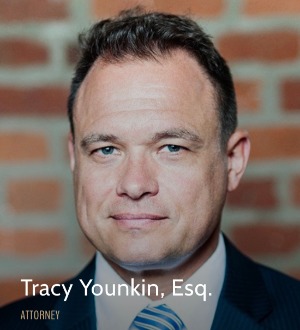The advent of VRBO and Airbnb has elevated short term rentals (“STRs”) of second homes and vacation properties across Pennsylvania, America, and the World. The Covid-19 pandemic seemingly increased STRs, as families and friends sought getaways to remote areas and open spaces, lake communities, the mountains, and beaches. This has turned into a bonanza for both renters and owners, and allowed more people to enjoy the luxury of a second home supported by short term rents.
But, with that unbound opportunity comes eventual regulation. There are two principal kinds of STR regulations, private and municipal. Further, municipal regulations may be broken down into zoning regulations and, separately, ordinary regulatory ordinances. With the rush to now restrict STRs, or to cash in through fees, permits, inspections and taxes, private communities and municipal bodies may be over-reaching and acting beyond their power, authority and the law.
Importantly, the right to rent one’s own property is a property right in Pennsylvania, and is inherent in the title given in a property owner’s fee simple deed, unless a restriction on the right to rent appears in title. Therefore, a private restriction on the right to rent must be, as with all restrictions, express and written. Restrictions on land use are disfavored by the law and will be strictly construed.
Spotting the Issues
If you are the owner of an STR and find yourself suddenly restricted by the governing homeowners, community or condominium association, or the local municipality, here are a few issues of which you should be aware:
Is the community authorized by its foundational documents to restrict the right of the lot owners to engage in rentals?
Foundational documents include a Declaration of Condominium, a Protective Covenant, or a community deed restriction, for example. If the foundational documents are silent, then, the right to engage in short term rentals may be fully preserved.
Do the community’s foundational documents authorize the Board of Directors, or other body, to regulate the use of private property, or only common areas?
In other words, take note if the Board is acting beyond the authority granted to it by the community’s foundational documents.
Do the community’s bylaws contradict or restrict STRs greater than the community’s declaration or the deeds to the affected lots?
It is Pennsylvania law in an interpretative dispute between a community’s bylaws and its declaration, protective covenant, or deeds to the affected lots, the declaration, covenant or deeds are superior.
Were the community’s bylaws or regulations restricting STRs adopted with the unanimous consent of the affected property owners?
Pennsylvania law is clear that property rights of lot owners in a community cannot be altered without their unanimous consent. Of course, a valid contractual agreement to allow for the modification of property rights under a different method is permitted. Absent such an agreement, unanimous consent is required.
Are any fees or charges levied against STRs authorized by the community’s foundational documents?
Many community documents specify that fees and charges must be uniform and limited to a share of the common expenses. Depending on the language in the community’s foundational documents, it may not be authorized to charge fees for, or regulate, conduct which occurs on private lots.
As for a municipality, does it have a zoning code?
Without a properly adopted zoning code, a township is not authorized to adopt zoning ordinances. What may appear to be an ordinary regulatory ordinance might in fact be an impermissible zoning ordinance, regardless of what the municipality might call it. Municipalities in very rural areas often do not have a zoning ordinance. Some STR ordinances may be unauthorized zoning ordinances. Note: Through a proper zoning ordinance, a municipality may regulate STRs through zoning.
Is the municipality authorized to regulate STRs?
There are various types of municipalities, for example, counties, cities, townships, boroughs, and home-ruled municipalities. For example, townships are further divided into two classes. Townships of the second class, those with less than 300 persons per square mile, have limited powers to regulate private property and businesses. Depending on the manner in which an STR ordinance is drafted, it may not be within the powers of a Second Class Township. Second class townships are often found in rural areas, and, in Pennsylvania, often contain many forms of short term rental properties, cabins, lake homes, ski-cottages, farms, and mountain homes.
Is the municipality’s STR ordinance constitutional?
Sometimes local legislation is driven by events and unconstitutional provisions might be adopted, such as permitting warrantless or unreasonable searches and entry upon property, or worse, into private homes, violations of equal protection and due process, limitations on the right to assembly, or an overreach of the power to regulate health, safety or welfare.
Did the municipality properly adopt the STR ordinance?
Pennsylvania law requires that ordinances be publicized in advance of adoption through various means of publication and with sufficient notice. Violation of these publication and notice requirements will render the ordinance void.
Remedies
Pennsylvania law provides remedies to determine if the action of a community association is lawful or compliant with its foundational documents. One may seek a declaratory judgment, essentially asking the Court to declare whether certain conduct, or a writing, is lawful or not. Injunctive relief may be appropriate as well. Also, there are Pennsylvania statutes that are useful in challenging the actions of a community. First, the Pennsylvania Planned Community Act and Condominium Act vests the Courts with the authority to enforce those Acts by judicial proceedings. Second, it is important to remember that virtually all private communities, whether an HOA, condominium association, or planned community association, or other form, are non-profit corporations. The Nonprofit Corporation Law specifically provides for the Courts to hear and determine the validity of the corporate action upon the application of any person aggrieved by any corporate action. In some circumstances, punitive damages may be appropriate. These three statutes effectively place the Courts in a supervisory role over misconduct by community associations and their exercise of power.
Money damages may be available for loss of rental as a result of a breach of fiduciary duties by the community’s board, or tortious interference with contracts.
With respect to municipalities, various remedies exist, including pursuit of constitutional claims and recovery of damages under 42 U.S.C. § 1983, as well as declaratory and injunctive relief. An improperly adopted ordinance may be challenged under 42 Pa.C.S. § 5571.1 so that the ordinance be made void. Of course, if the ordinance is lawful but there is a basis to seek a variance of the ordinance, or an interpretation, you should consider doing so. An STR ordinance likely will have an enforcement officer from whom relief can be requested and/or appeals filed.
Conclusion
STRs are coming under fire despite the positive economic benefit that often follows them. In the haste of quick action, community regulations and municipal ordinances and action may run afoul of the law.
If you have a question concerning the regulation of short term rentals by a community or a municipality, please contact Eric B. Smith, Esquire, 215-540-2653 or esmith@timoneyknox.com.

























